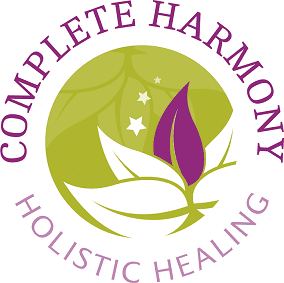Last year did you suffer or come close to being burnt out? Would you like to avoid burnout this year? The best way to do this is to actively put things in place that will make a positive difference to your wellbeing.
Is this you?
You like to be constantly busy. You’re the type of person who everyone calls on for help and advice. You love the feeling of being everyone’s go-to person. Others tell you how great you are at doing everything. Your to-do list is growing, and you LOVE it.
However, all this is starting to make you feel constantly exhausted. You’re feeling mentally and physically drained. Your get up and go has got up and gone! But you’re still trying to carry on as normal. You (and others around you) become aware that you’re making clumsy mistakes, you’re getting forgetful and you’re having negative thoughts and feelings about yourself. You’re becoming nervous and you start doubting yourself. Imposter syndrome sets in, followed closely by brain fog.
You keep yourself busy so that you don’t have to think about it, but after a visit to your GP, you are diagnosed with burnout! Yes, it’s now recognised as a medical condition.
What is burnout?
Basically, it’s the reaction to prolonged chronic levels of stress. It’s usually associated with work-related stress, but more and more, home and family stresses are contributors to burnout. Burnout can leave you exhausted and unable to cope with the demands of everyday life. You will often experience mental, emotional, and physical symptoms which leave you feeling unable to perform basic daily tasks. When you’re a busy businesswoman, working mom or carer, burnout is not a condition you can afford to have.
Symptoms of burnout
- You constantly feel mentally, physically and/or emotionally drained
- You have no enthusiasm for yourself, your job, your family or your life
- You have negative feelings about yourself and others
- You feel unable to perform basic work and family tasks
- Your thoughts are cynical and resentful
- You are forgetful which leads to silly mistakes
- You set yourself unrealistic goals and targets
- You are busy but don’t feel you are getting much done.
How to reduce burnout
If some of the above signs resonate with you and they are not due to any other medical condition, here are five simple things you can start doing right now to help reduce symptoms of burnout. They will help you to recognise what you need for your mental emotional and physical health and wellbeing. Putting your needs on your to-do list and creating healthy habits will help you to live a calmer and more balanced life.
Learn to say no
Saying yes to more than you can handle is a recipe for disaster. You may get a buzz from juggling many things at once. And if this is you then that’s great short-tern, but if done regularly your health will suffer. It’s time to learn how to say no; delegate tasks to others and make time for yourself and your needs.
Stop multitasking
Research has shown that multitasking is an ineffective way of working. When we multitask, we are never fully focused on one thing and this can lead to errors, and a reduction in quality which will result in time wasted as you re-check what you have already done and make corrections. As a result, you can experience low self-esteem and a lack of confidence in your ability to complete tasks correctly the first time. Start doing one thing at a time as this will help you tick things off your to-do list that you have completed to your high standards.
Have a morning routine
A morning routine will help you to start your day feeling in control and set you up with a positive mindset. Choose 3-5 things you can do every morning that suit your lifestyle and will help you to start your day on a positive note.
Become self-aware
Self-awareness is the art of curiosity about your values, beliefs, thoughts and behaviours. Being self-aware allows you to recognise your patterns of behaviour. When you are self-aware and have an open mind, you will be able to recognise any negative habits or behaviours you have and be open to making changes or modifications where necessary.
Practise self-care
Practising self-care enables you to be better equipped to confidently make choices about the things that are important to you. Self-care isn’t about bubble baths and candles (although they are very nice). It’s about being aware of your physical, mental and emotional needs. Start doing things daily that support you in these areas. Sleep, exercise and eating a healthy diet should be included in your self-care plans as they are important for your mental, emotional and physical health.
Self-care starts with you!
Reducing your levels of stress, overwhelm and ultimately burnout, starts with putting activities in place to support you mentally, emotionally and physically. A good system of self-care that seamlessly fits into your lifestyle will allow you to reduce, and more importantly, manage feelings overwhelmed that can lead to burnout.
I created my book, Self-care for Busy Women, for women just like you. In it, as well as the WHAT, WHEN, HOW and WHY of self-care, you will find worksheets, examples, a checklist, quotes, trackers, tips and strategies to help you put yourself and your needs on your to-do list. This workbook has been designed so that you can pick it up at any time and focus on the area of self-care that you feel you need to work on. It will help you put activities in place and create a self-care routine that suits you and your lifestyle.
Here’s what Alison had to say….
“I purchased this book because my self-care is an important aspect of my life. It was the useful reminder I needed and it gave me some tools I had forgotten about.”
Alison from Lichfield
Grab yourself a FREE copy of my 5 Ways to Avoid Burnout and keep it on your phone or laptop as a regular reminder of what to look out for and how to create healthy habits.
If you would like to know more about the services I offer and how they can help you, please get in touch for a no-obligation Discovery Call.
About Sharon

Sharon lives with her partner, Geoff, in Warwickshire and they have two adult children. She worked for over 25 years in an office environment, gaining qualifications to degree level in finance, business and management. While there Sharon witnessed and experienced many stressful situations and suffered stress-related illnesses.
Sharon was advised to make some changes to her lifestyle which included trying complementary therapies. After experiencing the benefits of complementary treatments, Sharon decided to retrain and share her knowledge and experiences to help others recognise and manage their own physical and emotional stress and anxiety levels.
Sharon has been working as a complementary therapist for over 15 years, and she loves helping people manage and reduce their stress levels, to feel uplifted, focused, positive and empowered about their lives.





